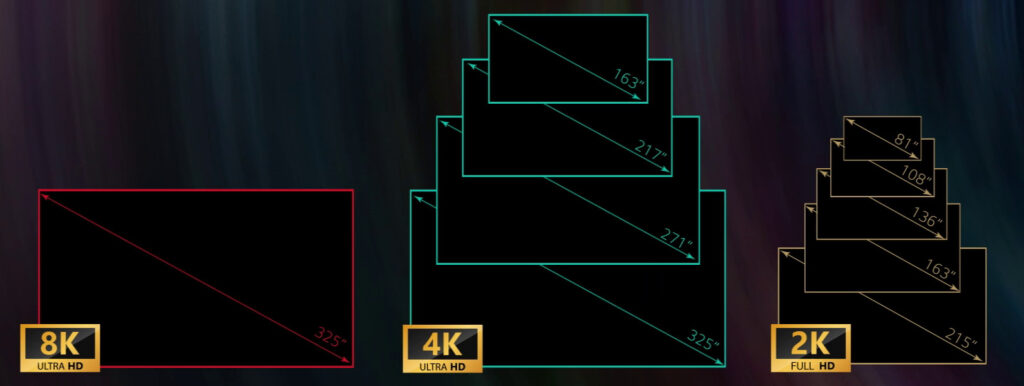It comes in configurable sizes with different resolutions, coming in at 2K for the “tiny” 81-inch model and going all the way up to 8K for the aforementioned behemoth. The 2K and 4K versions can also be configured in what LG calls “Ultra Stretch”, where the display is much longer horizontally and would most likely be used to display art instead of watching movies due to the awkward 32:9 aspect ratio. The DVLED display works similarly to MicroLEDs, using millions of tiny individual LED diodes that result in better contrast and deeper blacks. All the TVs in this series support HDR10 and run on LG’s AI-powered a7 processor, as well as being equipped with a WebOS controller box. Depending on which configuration you choose, the TV has a peak brightness between 800 and 1200 nits.
Now, if you’re getting excited over this, just wait until you hear the price. CNET found that the maximum configuration of 8K 325-inches, weighing 2222 lbs (1007 kg), costs a gulping USD$1.7 million (~RM7.07 million). The price for the other sizes aren’t listed as it depends on the customisation of the order, but if Samsung’s RM599,999 price tag for its MicroLED TV is anything to go by, then you can bet LG’s new series costs at least six figures. For the money that you could be spending on a house, LG’s customers will be getting a five-year warranty, three years of twice-a-year maintenance, an ATA flight case, and even a field engineer that arrives with the TV to your home to provide on-site training. (Sources: LG, CNET)
